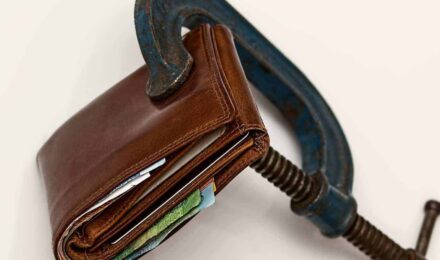Many of us want to lose weight fast and get rich quick. However, it’s difficult to accomplish either one of those in a short period of time. Unfortunately, the same can often be said for trying to raise your credit score in a hurry. (more…)
It can take weeks or, more likely, months for something good (paying off debt) or something bad (making late payments) to affect your credit score.
“Increasing your credit scores takes time,” according to Experian, one of the three major credit-reporting bureaus. “The more serious your credit challenges, the longer it will take. It may be difficult to raise your credit scores in just one or two months, which equates to just one or two billing cycles.”
Still, there are things you can do on your own to move your credit score in the right direction, although a higher credit score might not happen as rapidly as you’d like.
Here are four ways to potentially raise your credit score fast (or at least as fast as possible):
1. Reduce your debt
Credit-scoring expert John Ulzheimer says that if your credit scores (you actually have more than one) are low because of credit card debt, then you can bump them up by paying off or reducing that debt.
Credit scores produced by FICO and VantageScore are heavily influenced by the amount of credit card debt that shows up on your credit reports, he says.
Of great importance are the number of accounts that have balances and the credit utilization ratio (the amount of credit you’re using compared with the amount of credit you’ve got available).
Ideally, it’s best to keep your credit utilization ratio at 35% or less.
Gerri Detweiler, education director at Nav, a startup that helps small businesses build and manage credit, says there’s no “magic number” for the ratio. But, she adds, keeping balances below 25% of available credit should help lower your credit scores.
According to Experian, credit card providers usually report your information to the credit-reporting bureaus about once a month. Those updates then are reflected on your credit reports and could cause your credit scores to go up or down.
It might take 30 to 45 days for you to raise your credit score if, for instance, you’ve paid off $1,500 in credit card debt. However, a change also could show up in a matter of hours or days, according to TransUnion, another credit-reporting bureau.
There’s no guarantee, however, that your credit score will rise or fall dramatically based on updates to your credit reports.
“Time is your ally in improving your credit scores. There is no quick fix for bad credit scores,” Experian says.
2. Consolidate debt
People who can’t afford to pay off or reduce their debt might benefit from consolidating their debt into a personal loan, Detweiler says.
If the loan is reported as an “installment” loan, which most personal loans are, then this debt will have less of an effect on your credit utilization ratio and, potentially, your credit scores than other types of debt do.
3. Ask for a higher credit limit
Let’s say you’ve got a credit card from XYZ Bank that has a $1,500 credit limit. If you’ve paid your bills on time and otherwise have responsibly used your card, you might qualify for an increase in the credit limit.
Does that sound like you? If so, contact the bank to seek a higher credit limit.
How could this help your raise your credit score? A higher credit limit boosts the total amount of credit you have available from all sources and, therefore, improves your credit utilization ratio. That can lead to higher credit scores — but only if you don’t endanger your credit utilization ratio by adding more debt.
4. Pay off a long-overdue debt
This strategy might or might not work.
Typically, a debt that has been turned over to a collection agency — you know, the folks who bombard you with phone calls — stays on your credit reports for 7½ years, according to Detweiler. Under most credit-scoring models used by lenders, a debt that has gone to a collection agency is considered negative, no matter whether the debt is paid or unpaid, she says.
However, newer credit-scoring models ignore an account that was handed over to a collection agency if the balance is now zero, Detweiler says.
Also, she says, one collection agency actually has started erasing accounts from credit reports that have been resolved and are at least 2 years old.
“It can be a good idea to resolve collection accounts. You may luck out and get it removed — it never hurts to ask — and other collection agencies may adopt similar policies,” Detweiler says.
Keep in mind, though, that debt collectors, credit-reporting bureaus and lenders aren’t obligated to remove negative information from your credit reports if the information is accurate, according to Ulzheimer.
Other tips
While these steps might not result in a quick rise in your credit scores, they can help you maintain a healthy credit score in the long run:
- Make all payments on time. This is the most important factor in determining your credit scores. Set up automatic payments or payment reminders so that you can stay on top of credit card and loan payments, and always make at least the minimum monthly payment.
- Get credit cards only when you need them. “Don’t open accounts just to have a better credit mix. It probably won’t improve your credit score,” Experian warns.






